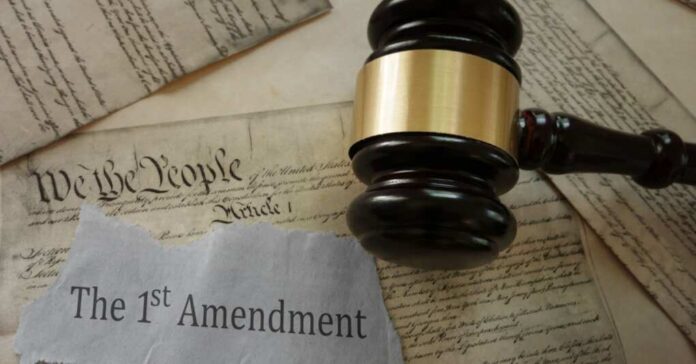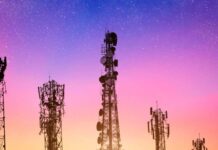
It’s becoming increasingly evident that a Biden-appointed Justice might not be the unwavering guardian of your First Amendment liberties as anticipated. Surprising, isn’t it? The one in question is none other than the freshly minted judge, Ketanji Brown Jackson. Let’s face it: Her ascent to the bench likely owes more to ticking off the DEI (Diversity, Equity, and Inclusion) checkboxes than to her dedication to upholding constitutional principles.
The recent deliberations at the Supreme Court involving Justice Ketanji Brown Jackson underscore the enduring relevance of the First Amendment. Nominated by President Biden in 2022, Justice Jackson participated in hearings addressing the extent to which the government may influence social media platforms like X, Facebook, Google, and their parent companies regarding private speech shared by Americans.
At the heart of the ongoing debate is the crucial question of whether or not the government should be permitted to intervene in situations where certain types of online content may threaten public safety. There are a host of arguments both for and against regulatory action, and the issue remains a contentious one. The crux of the matter is whether the First Amendment of the U.S. Constitution entirely prohibits any form of governmental intervention or if there is some leeway for regulatory measures to be taken in specific cases.
This complex and controversial issue demands careful consideration of the potential risks and benefits of governmental involvement in regulating online content. During the proceedings, Justice Jackson questioned Louisiana Solicitor General Benjamin Aguinaga and expressed concern about the potential constraints imposed by the First Amendment, particularly during critical junctures.
According to Jackson:
“My biggest concern is that your view has the First Amendment hamstringing the government in significant ways, in the most important time periods.”
Jackson further elaborated that the government may have a responsibility to safeguard the nation’s citizens. However, she perceived a contradiction in suggesting that this duty could not translate into governmental encouragement or pressure on platforms to remove harmful content.
Jackson’s comments should make us wary. What qualifies as “important?” If the government can censor speech under the guise of protecting the public from harm, how do we define what is “important” and what content is “harmful.” The public has already seen the potential overreach on this very topic. The release of the controversial Twitter files showed that the government was exerting tremendous pressure on Twitter to block content, blacklist, and/or shadow-ban renowned Doctors who were expressing legitimate concerns over the vaccine for COVID-19.
It’s also a fact that the Hunter Biden laptop story was suppressed through censorship, ultimately robbing the public of potentially crucial information that could have swayed the 2020 election. It didn’t end there; pressure on Twitter caused popular Republicans like Donald Trump and Marjorie Taylor Greene to be banned.
The exchange should prompt reflection on Justice Jackson’s commitment to upholding the nation’s best interests. Critics are now questioning her understanding of the First Amendment’s significance.
The First Amendment of the United States Constitution guarantees five fundamental freedoms, many of which are taken for granted. These freedoms include the right to practice any religion, the freedom of the press, the right to petition the government, the right to assemble peacefully, and the freedom of speech. They are essential for individual expression and the functioning of a healthy democratic society.
The First Amendment prohibits Congress from promoting or obstructing these freedoms, ensuring citizens can speak their minds and hold their government accountable. By safeguarding these liberties, the First Amendment helps maintain the integrity of our governmental framework and fosters a free and open society.
Similarly, when Justice Brett Kavanaugh asked Aguinaga about instances where social media platforms disregard governmental input, Aguinaga reiterated the principle that such interference constitutes a violation of the First Amendment. He emphasized the importance of preventing government overreach and rejected the notion that governmental entities could coerce platforms into censoring individuals’ free speech.
In his argument, Aguinaga reminded the Supreme Court that government pressure to censor online discourse undermines the Constitution’s core principles of free speech. His stance emphasizes the importance of protecting social media platforms’ independence and upholding individuals’ right to express themselves freely without undue government influence.















